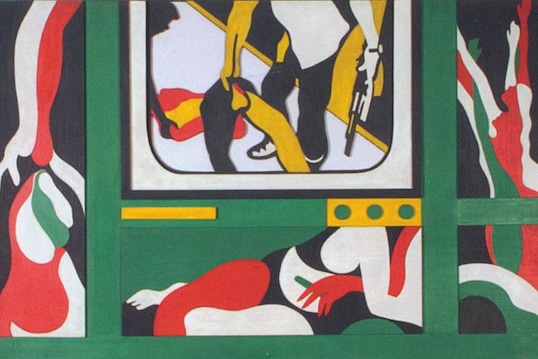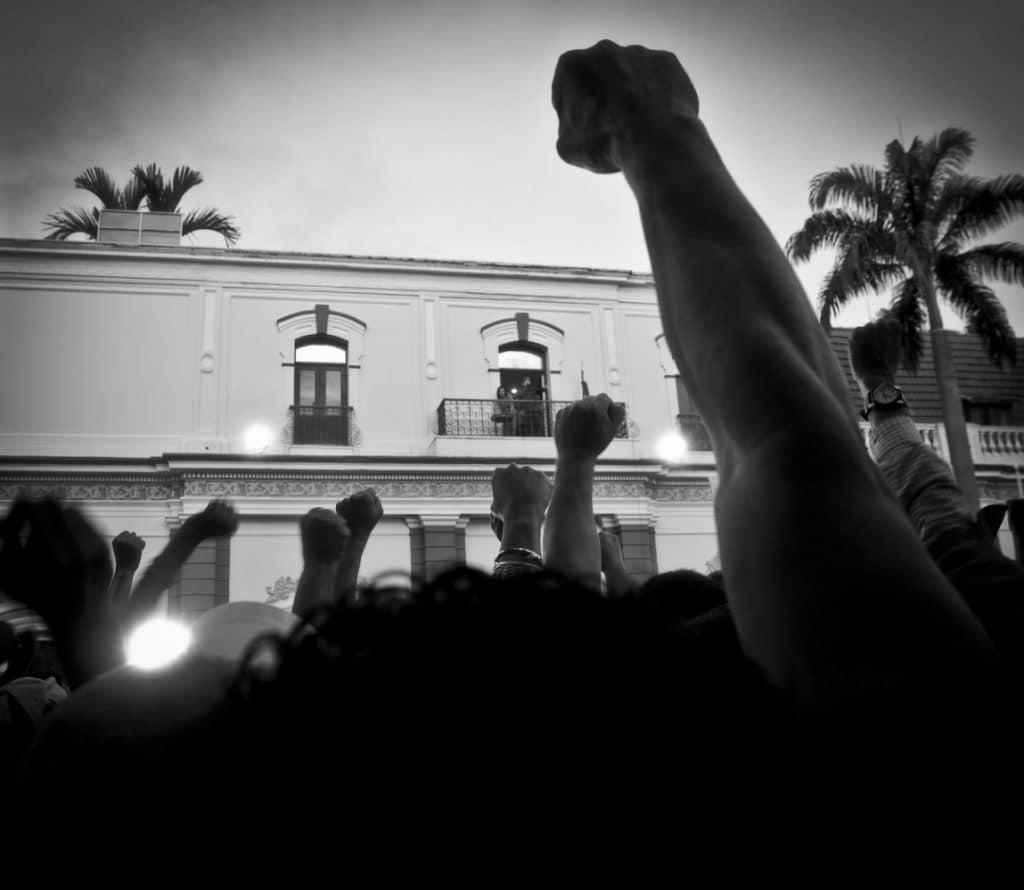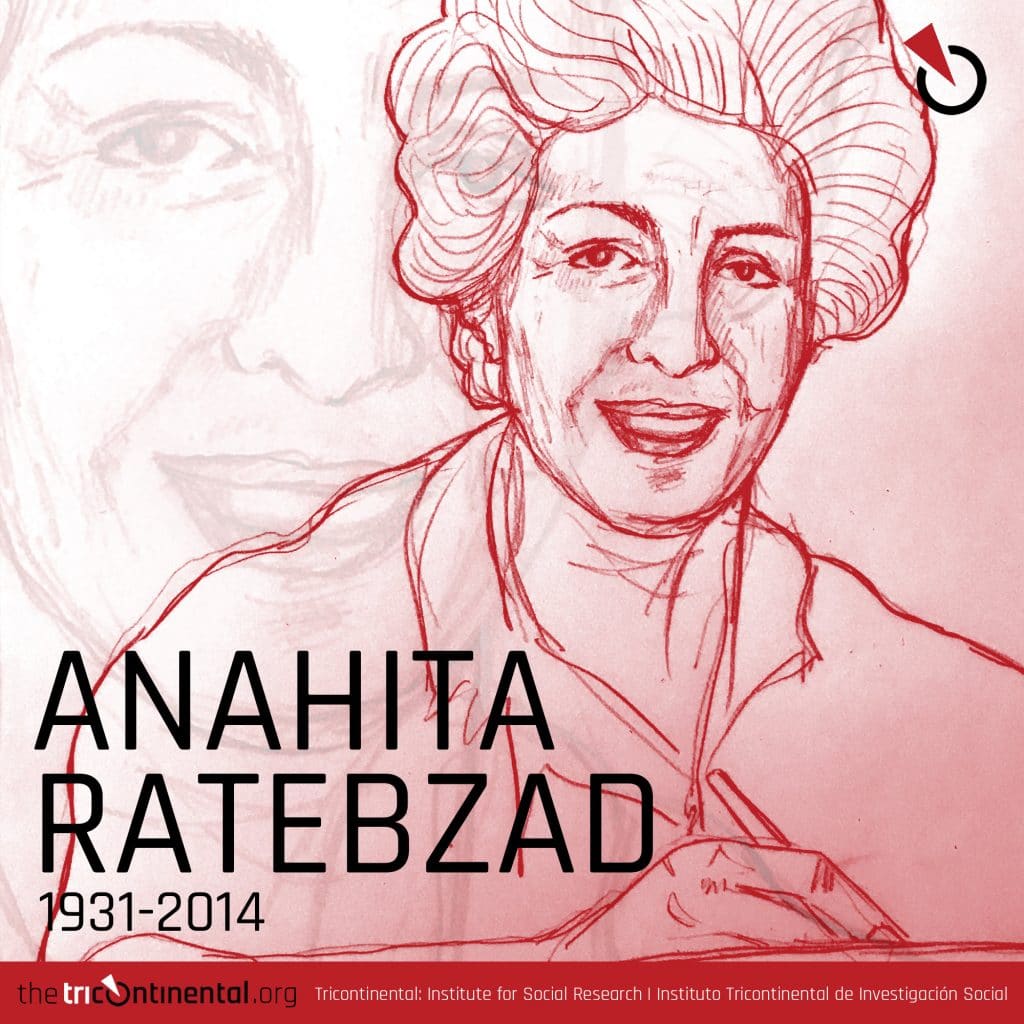Dear Friends,
Greetings from the desk of the Tricontinental: Institute for Social Research.
Brazil’s election result is appalling. Jair Bolsonaro, who will take office early next year, will be the most extremist head of government on the planet. If he cuts down the Amazon Rain Forest–as he promises–it will be catastrophic for life. Bolsonaro might engage in a form of Braxit, the removal of Brazil from the BRICS, and take it into the OECD–shift Brazil from its engagement with the South into the arms of the West. From Rodrigo Duterte to Bolsonaro, from Narendra Modi to Donald Trump–the Strongmen have taken over (my brief note in The Hindu on the election). These men are cut from the same cloth. The ugliness of the neo-fascists emboldens violence against ordinary people but protects the wealth of the oligarchy. This is the Violence of Fools. Vigilance by sensitive people is essential. None of this is normal. To see it as such is a defeat. We live in an age of the abnormal, an age of monsters, an age of the strongmen, the devastation of humanity, the ache of decent people.
This is the ache that João Pedro Stedile, leader of Brazil’s Landless Rural Workers’ Movement (MST), reflects when he insists that the antidote to the strongmen is the renovation of the Left and the gathering together of the people’s forces.
Our newsletter this week is slightly different. Most of it the text of a talk I gave at a conference on the work of the Marxist economist Samir Amin (1931-2018) in Ramallah (Palestine). This week, we release our first Notebook, which comprises one of the last interviews given by Samir Amin. The interview was conducted by our Tricontinental: Institute for Social Research fellows Jitheesh PM and Jipson John. It is beautifully designed into this Notebook by Tings Chak. Please read the Notebook, downloadable for free here, use it as you will–teach from it, hold discussions around it and give it to people who might benefit from a primer on the work of Samir Amin.
Coming soon from LeftWord Books is Only People Make Their Own History: Political Essays, 2000-2018, a collection of Samir’s essays with an introduction by his friend the Marxist intellectual Aijaz Ahmad.
For now, a brief detour into another world.
You are part of the leadership of a popular movement that has just seized power in your country. Your commitment is not to bourgeois nationalism, but to socialism. You are from a country that had been under colonial rule and then neo-colonial subordination or else from a country that was not formally colonised but nonetheless experienced the full weight of imperialism. Your economy is in tatters, its raw materials drawn out of the country, its people reduced to labour on the global commodity chain gang. Your country has not been able to forge an independent foreign policy, nor a capacious social policy. A popular upsurge that began with an anti-IMF riot brings you to power. The window of possibility for your government has begun to close just as its opens.
What will you do?
The U.S. ambassador–accompanied by a delegation of local representatives of monopoly capital firms and the local oligarchy–comes to see you and your comrades. This gaggle of important people flutter about, coming to ensure that your government will set aside its grand promises to the people and–after some mild transfer payment schemes to tackle the terrible poverty–will resume the status quo. After all, says the U.S. ambassador, the status quo has been good for the country. The FDI flowed in, the IMF report of its staff visit has been productive, the GDP is high, the currency is relatively stable and the oligarchy–well, the oligarchy has been the pride of the nation. The ambassador wags a finger in your face–arms deals have to be signed, military agreements have to ratified. The boat is on an even keel, says the ambassador. No sense in rocking it.
You knew that this delegation would come to see you. Nothing they say or do surprises you. Countries like yours–countries of backwardness (takhalluf)–do not control their destiny. Colonial rule altered the structure of politics and economics as well as of society. Old notables had been side-lined or absorbed into the new world where they become merely representatives of forces that lived elsewhere. The new elites that emerged represented the interests of themselves certainly, but also of external forces–not their own populations who had been reduced to rubble by the plunder of colonial rule. Poverty came alongside illiteracy and disease. Backwardness was not the fault of your culture, but of this imperialist history. Your movement came out of the slums, where the bulk of your people live. They have spoken to you. They have given you their programme of action. They want you to act.
When your people won independence or overthrew your monarchy fifty years ago, the new elites seized power. They offered up your raw materials and your workers for rock bottom prices, as long as they got a cut of the profits. That is what they had won independence for–to increase their share of the theft. This large-scale bribe was then replicated down the class ladder as your country became a country of bribe-taking rather than social initiative. No development could come to your country, whose social advancement was blocked by structural obstacles such as the terms of trade for your primary products and your reliance upon finance from the old colonial powers. Your rich minerals and rich agricultural products find their prices fluctuate and remain low, while the prices of manufactured goods that you import from the imperialist powers increase. The gap between these two leaves your public exchequer in permanent debt. You borrow money from the banks of the imperialist countries and you use their currency for your international trade–both drawing you in to what you know is the imperialism of high finance. Underdevelopment is the only development that your country experiences.
Your group of revolutionaries had spent the decades under the clouds of IMF warfare studying the ‘unilateral adjustment’ thrust upon your country. You discover Samir Amin, who gives you that concept of unilateral adjustment. It means that the policy framework for any government of your country will be channelled by rules devised elsewhere, rules that benefit the old colonial powers and impoverish your own country. Even socialists are trapped by this unilateral adjustment. Structures such as unequal exchange and old-fashioned plunder vampirically diminish the wealth of your country. Your country was forced to adapt to the needs and interests of the old colonial powers. You can never be free.
This is the moment for you to test the theory of delinking–the concept you absorb from Samir Amin. To delink is not to break from the world and isolate oneself. Isolation is not possible. If you do break with the unilateral adjustment, you will either be overthrown in a coup or a military intervention in the name of saving civilians or you will be under sanctions and embargos for decades. You do not want to isolate yourself. You are an internationalist. To delink means to fight to set an alternative framework for your relations with the world, to force others to adjust to the needs and interests of the working-class and peasantry in your country and in other countries. Delinking, you read in Samir Amin, means to ‘modify the conditions of globalization’.
You dismiss the delegation politely. The signatures cannot be done now. They will have to wait.
There is a major gathering of the people in front of the presidential palace. You go before them. Their future hangs in the balance. They look up at you. They want you to represent them against the U.S. ambassador, the arms dealer, the oligarchs, the military generals, the monopoly capitalists, the IMF, the World Bank, the NGOs……
Your speech will be long. There is so much to say. You will be interrupted. The people have to have their say. You announce a series of decrees.
Decree no. 1. Capital Controls. You announce that capital markets are no longer free, that there will be barriers now placed before the ability of capital to swill in and out of your country at will. There will now be restrictions on the buying and selling of your national currency, there will be minimum stay requirements on foreign investment and there will be transaction taxes for the removal of currency from your country. These controls–essential as a first step–would allow the government some autonomy to develop an independent monetary policy and to pursue a socialist agenda.
Decree no. 2. Immediate Renegotiation of all Extractive Deals. You say that all previous mining agreements are now null and void and that these will be renegotiated immediately. Your Ministry of Mining and Ministry of Economy will be forensic in looking through the agreements, making sure to erase the possibility of mispricing and other fraudulent means used by monopoly firms to extract super-profits from mining prices. You will also insist that the mining firms process the raw material inside your country, that they transfer technology to the state mining firm so that it might begin its own processing of the raw materials.
Decree no. 3. Reinvigorate Your Currency. You will set in motion measures to remove your currency from being pegged to the U.S. dollar and produce a more distributed means of weighing your currency (with the Chinese Renminbi, the Euro and the Dinars of Kuwait and Bahrain as well as the Rial of Oman). You will not allow your currency to import inflation through manipulation of currency, for which you will now institute a crawling peg on your exchange rate regime.
Decree no. 4. Increase the Commons. You gather public goods and services–such as health care and education, water and electricity delivery–and turn their provision over to the state. ‘That is not enough’, the people cry out. They want more. They know that a centralised system to distribute electricity will only create a hierarchical bureaucracy. You tell them that this is only provisional. You will move to decentralize the water supply and electricity grids, to enhance environmental measures and to build cooperatives that manages these decentralized sectors. These goods and services will be considered social wages, so that there will no longer be any fee for service. No civilization, the people chant announce, should make money on education or health. You will encourage the creation of cooperatives and neighbourhood committees to ensure that services are properly distributed, and that voluntary labour is a key part of the creation of a rich society.
Decree no. 5. Increase State Banking. ‘Down with the banks’, the people say. They want you to nationalize the banking sector and convert it into a public utility that should operate without concern for profit. Farmers and small business people should be able to take loans with the understanding that their businesses cannot provide a rate of return nor speed of return equal to that of the financial sector. The competition for such loans is not what can be made by an investment in derivatives or on the currency market. The task of these banks is to enhance the economy, the people tell you, not to make money for the banks and for the oligarchy as well as for international capital.
Decree no. 6. Eco-Socialist Manufacturing. The people tell you about how they live, in hovels with dirty effluents from dirty industries. They want you to nationalise the strategic sectors and hastily convert polluting manufacturing into ecological production, using local materials as much as possible and working against the externalisation of pollution to make profitable goods.
Decree no. 7. Strengthen Unions of Workers and Peasants. You know that your base is amongst the workers and the peasants as well as the disorganised shack dwellers. You want to strengthen their power, to make them into a wall that can defend you against the attacks by the local oligarchy the military and imperialism. If your base is not strong, then you will be weak. ‘We want robust unions’, the people say, unions of workers and unions of peasants. ‘We want our unions to control our savings and our pensions’, they say, to create cooperative banks to invest in our communities, to give us insurance. These unions–alongside cooperatives and neighbourhood committees–will become the basis of local political power.
Decree no. 8. Dignity Must be Ensure. The people must never feel that society or the state has let them down. ‘We don’t want the state to be a distant bureaucracy’, the people say. They fight for every enhancement of their dignity, because–as they say–‘there can be no freedom without every community’s freedom’. Laws that impinge upon dignity will be torn and new laws will be produced, laws that give men and women equality from the workplace to inheritance, laws that give all social minorities and ethnic groups full freedom in society and in the state. Relations between people are destroyed by the intervention between them of hierarchy and property. ‘Mutual dignity and regard’, the people say, ‘should be the value that holds people together’.
Decree no. 9. Establish a State Commission on Enlightenment. Part of strengthening your base is to ensure that the ideology of the ruling class is not the ideology of the people. ‘Let us read’, the people say, ‘let us read books that tell us about ourselves, read an internet that reflects us and does not diminish us’. You will form a State Commission that studies all textbooks and all literature to offer a critical apparatus for literacy and science that enhances the power of the people and does not diminish their sense of self. You will insist that the people fight to make the Internet a place of mutual regard and not a battle of egotistical interests and money.
Decree no. 10. Abolish the Praise of the Oligarchy and Praise the People. You will dismantle monuments erected in honour of the oligarchy and the colonial masters as well change the name of streets. ‘We hate the names of the streets’, someone interrupts. All statues will be moved to a Museum of Hierarchy, where school children will learn about the old days of colonialism and oligarchic rule. You will set up cultural institutions that will enhance the cultural practice of the people, introduce horizontal forms of entertainment and joy–including the promotion of festivals and performances in community centres run by neighbourhood committees.
You anticipate an attack from imperialism. It will come. FDI will dry up. Warships will come alongside your coastline. You know that you cannot survive without one additional force that you need to set in motion as part of your delinking project–regionalism.
You call a conference of your neighbours, asking them to agree to the strengthening of the old regional pact that has remained dormant. This revived regional pact will have to settle old border disputes–most of them an inheritance of colonialism–and it will have to be the venue through which you build trust with each other. You hope that one or two other powers adjacent to you has a socialist government or at least a government with socialist pretensions. You want to give them strength and leadership. You want them to agree to favourable terms for regional trade and for regional development. You would like to share defence agreements so that each of you no longer have to spend so much on the import of military equipment. You would like regional investment in a regional airline and in a regional rail service. No longer should your citizens have to go to the old colonial country to change planes and then get to your neighbours’ capital. They should be able to go straight from one country to the next. You would like to create a regional currency system, so that you don’t have to trade with each other using the imperialist powers’ currency. A regional banking system, a regional media outlet, a regional adjustment of needs and interests away from the metropole and towards one’s neighbours–a delinked regionalism.
You can hear the imperialists, like jackals, baying in the distance. You hope you have enough time. You hope that your people will be patient and strong. You hope that your regional partners will not buckle under the pressure. You have Samir Amin’s books near you. They are by your side. You have hope, the people and Samir Amin. That is a start. Nothing here is original. Everything has been tried before. Everything must be tried again.
***
Warmly, Vijay.
PS: The image below is of Anahita Ratebzad (1931-2014). ‘Women’s emancipation’, she said, ‘has to be a central part of any Left movement’. This Afghan Communist became the Minister of Social Affairs after the Saur Revolution of 1978. In the first days of their new government, the Left declared that women had the right to equal education, to job security, to health services, and to equal rights inside the family and for divorce. As the leader of the Democratic Organisation of Afghan Women, Anahita brought thousands of new members to fight for their rights. She was driven into exile in 1992, but never stopped dreaming of a socialist Afghanistan.





